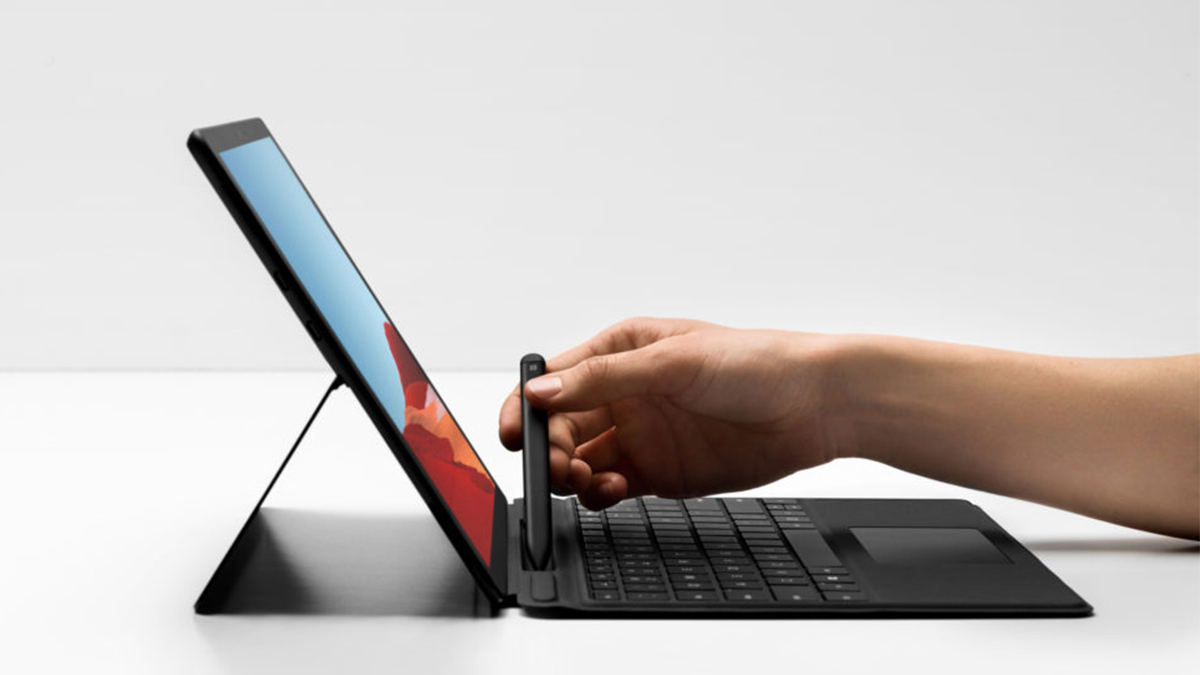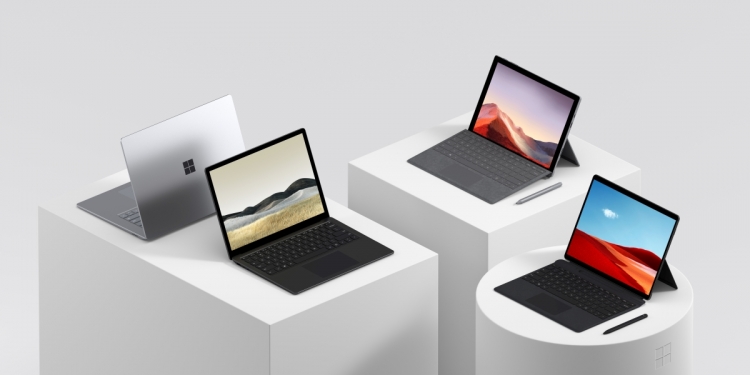Microsoft’s range of computers, tablets, and convertibles under its Surface brand have generally been popular due to the portability and convenience of the devices. The company has extended the range of Surface series in recent times, with an ARM-based Surface Pro X now sitting alongside a more conventional Intel-powered Surface Pro 7. However, something that has been missing across the series is support for Thunderbolt, along with removable/upgradable memory.
So, why is that? According to a leaked audio clip that purportedly recorded an engineering meeting for Surface devices, security concerns are at fault here. Apparently, Microsoft decided against including Thunderbolt support due to the susceptibility of having a “direct memory access port”.
“No Surface device has Thunderbolt. Why not?”
“If you have a well-prepared stick that you can put in the direct memory access port, then you can access the full device in memory and access all data that’s stored in memory again.”
Additionally, the speaker in the clip also makes reference to the fixed memory capabilities of Surface devices. All Surface devices do not have upgradable physical memory, with RAM soldered to the device. If Microsoft designed Surface devices with removable/upgradable memory, apparently the fear is that personal data could be compromised if said memory is removed.
“If you’d be able to upgrade the memory, what you can easily do is freeze the memory with liquid nitrogen, get the memory out, and then put it in a specific reader. And then you can access all the data that was loaded into memory.”

No names are mentioned throughout the clip, although The Verge reports that the video is genuine. The person speaking throughout the video is supposedly an employee of Microsoft, as well as a specialist in the Surface range of products.
At the moment, Microsoft has not released an official statement on the matter just yet. If the video clip is to be believed, it is rather odd that the company is blaming the lack off Thunderbolt and upgradable memory on security concerns. We’ve seen plenty of other laptop/computer brands go with Thunderbolt support—even Apple with its MacBook Pro.
Instead, Microsoft is continuing to back its proprietary connector, the Surface Connector, although it doesn’t really offer the same strengths. You don’t get the same data transfer speeds, although the Surface Connector still offers all-in-one support for power, data, and video. Many have called for a move towards a more universal standard instead, although based on this new development—it might be all in vain.








